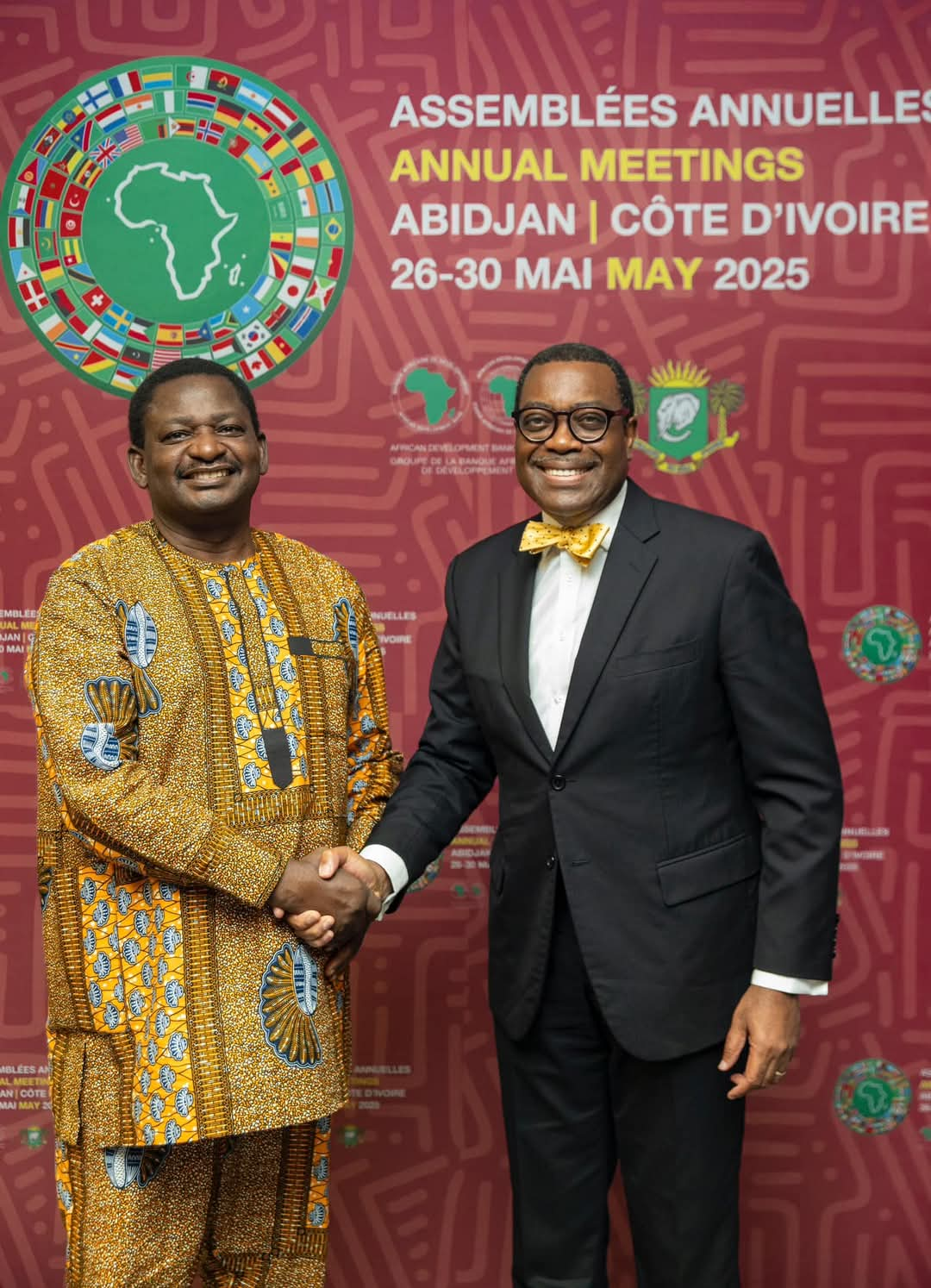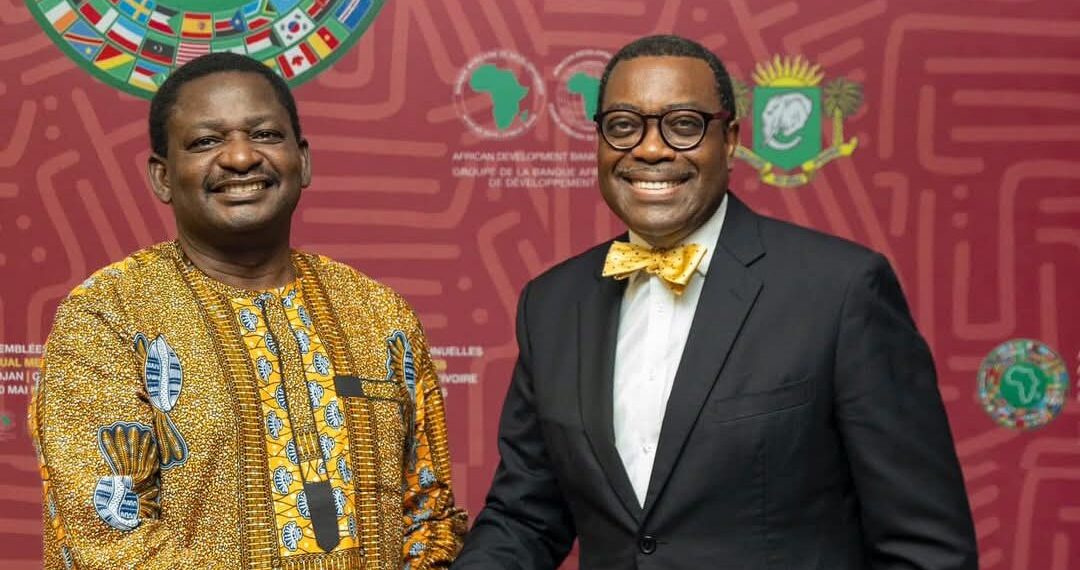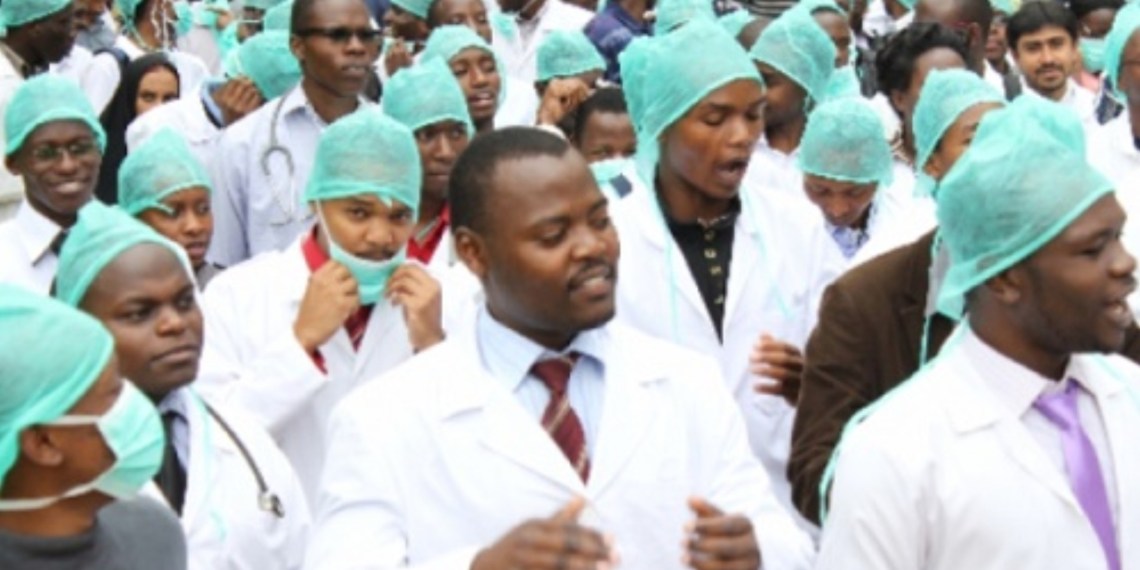The sun is setting on an era at the African Development Bank (AfDB) as Dr. Akinwumi Adesina, the renowned Nigerian agricultural economist and 8th President of the AfDB, prepares to hand over the reins. While August 31 marks the conclusion of his decade-long leadership, the atmosphere at this year’s Annual Meetings in Abidjan, Côte d’Ivoire, carried a sense of both reflection and anticipation for what lies ahead. Dr. Adesina’s tenure has been defined by growth, reform, and a passionate drive to transform Africa’s development landscape.
The significance of the AfDB Annual Meetings goes far beyond ceremonial gatherings—they serve as the primary stage where leaders, policymakers, and stakeholders set developmental priorities for Africa and its global partners. This year’s edition, held at Abidjan’s elegant Sofitel Hotel, brought together delegates from all 81 AfDB member countries: 54 from Africa and 27 from other regions, putting a spotlight on Africa’s relationship with the world.
According to AfDB officials, the turnout surpassed 2,000 participants, a figure that demonstrates the increasing importance of multilateral institutions in shaping Africa’s future. “There is a sense of urgency and hope in the halls this year,” said Kabiru Salau, a Lagos-based development consultant who attended side meetings. “With Dr. Adesina’s transition, everyone wonders how the momentum will be sustained.”

The invitation to attend as a special guest came swiftly and efficiently—a nod to an institution priding itself on structure and professionalism, which Dr. Adesina emphasized throughout his leadership. The prompt communication, from his Special Adviser Lola Visser-Mabogunje to Cabinet Office official Liliane Kouawo, set the tone for what many say has been a hallmark of his administration: discipline and order.
Touching down in Abidjan on May 26, I joined a diverse cohort of government officials, journalists, business leaders, and civil society advocates, each eager to witness this pivotal moment. For many Nigerians and West Africans, Dr. Adesina’s journey resonates as a symbol of home-grown leadership earning global respect. The question lingered in every corridor: what legacy would he leave?
Despite a packed agenda that often ran late into the evenings, Dr. Adesina was visible, engaging directly in panel discussions, bilateral talks, and networking sessions. Most attendees doubted he could spare a moment for one-on-one meetings, but on Thursday, May 29, he requested time for a private conversation. When I entered his office at the precise scheduled time, he appeared impeccably dressed and in high spirits—showing little sign of the reported exhaustion that had nearly left him faint after the previous day’s marathon engagements.
During our discussion, Dr. Adesina was full of gratitude. He openly credited former Nigerian President Muhammadu Buhari for his unwavering support, especially in 2020 when his re-election faced opposition. “President Buhari asked me; did you steal money? Did you misappropriate funds? I said no. And he said: ‘I will not only be behind you, I will also be beside you,’” Dr. Adesina recounted, highlighting the crucial backing that fortifies African executives in international institutions.
Observers say this support was instrumental to his survival during a period of intense scrutiny, as reported by Reuters and various pan-African outlets. President Buhari reportedly lobbied other AfDB member nations, sending personal letters and making calls to shore up Nigerian influence and ensure that the West African region maintained a strategic voice at the Bank. “This was Nigeria showing that its diplomats and leaders can shape global outcomes when united,” explained Ngozi Ikeji, a public policy scholar based in Abuja.
Dr. Adesina’s commitment to acknowledging allies and partnerships is often cited as a key tenet of his leadership. Throughout the week, he repeatedly referenced the importance of teamwork—a core idea in what he called NOWAHALAZONE, described by delegates as a philosophy of not forgetting the acts of support and collective achievement. He invited only a select few to his inner circle for a private farewell dinner, exemplifying his personal appreciation for relationships built over the years.
Contemplation around succession was a major talking point. The presidential election for his replacement took place on May 29, with candidates reportedly fielded from countries like Senegal, Chad, Zambia, Mauritania, and South Africa. Despite rumors about Dr. Adesina’s preferences, multiple AfDB insiders confirmed that he stayed above the fray, refusing to anoint any contestant. Ultimately, Sidi Ould Tah of Mauritania was elected, with the process described by international observers as transparent and inclusive.
The opening ceremony on May 27—delivered by Dr. Adesina himself—resembled a “state of the bank” address. While not a farewell, it charted key milestones from his administration: when he took office in 2015, AfDB’s capital base stood at $93 billion. Today, thanks to aggressive fundraising and strategic investment, that figure stands at $325 billion, according to official AfDB financial statements. Equally, his signature “High 5s” initiative—spanning energy, food security, industrialization, regional integration, and improving the quality of life for Africans—was credited for positively impacting 565 million people across the continent, with sustained African media coverage. Dr. Adesina’s speech was notably inclusive, emphasizing “we” over “I,” repeatedly acknowledging the efforts of AfDB’s wider workforce.
“It’s that kind of humility and collective spirit that sets a positive example for other African institutions,” said Kemi Mensah, a Ghanaian journalist covering the Annual Meetings. However, some observers highlighted continuing challenges. “Access to electricity and potable water remains a struggle in many African rural communities,” noted development economist Dr. Samuel Adeyemi. “The next administration must accelerate progress to ensure that these celebrated gains reach everyone, not just select urban populations.”
A particularly heartfelt moment came when Dr. Adesina paid tribute to African heads of state, especially Côte d’Ivoire’s President Alassane Ouattara. The AfDB President’s voice wavered—an unusual display of emotion that resonated deeply with attendees. According to those present, this underscored that leadership is as much about empathy as it is about operational results. “It’s rare to see a leader so moved by gratitude,” commented Nana Agyeman, a pan-African blogger. “That vulnerability is relatable for ordinary citizens facing their own challenges.”
Both during and after the event, Dr. Adesina called on his successor to safeguard the AfDB’s key achievements. Institutional memory and leadership transition remain hot topics both within the bank and among development partners. Cautiously, sector analysts urge continued vigilance: “Legacy can be fragile if there’s policy reversal or donor fatigue in the coming years. The incoming administration must keep the momentum,” advised a recent report by the African Development Policy Institute.
Even outside the official proceedings, Dr. Adesina’s impact was evident. At Abidjan airport, the mere appearance of the Adesina surname on travel documents drew enthusiastic remarks from immigration, customs, and security personnel. Some officials, speaking in French and English, praised his fluency and the progress made under his watch. “He has done well for Africa,” one officer reportedly said. Such grassroots acclaim is not just polite conversation—it signals how closely continental institutions tie into daily West African pride.
As the AfDB prepares for a formal handover in August, Abidjan’s gathering served as both celebration and gentle farewell for Dr. Adesina’s decade of stewardship. The words of William Shakespeare linger: “If we do meet again, why we shall smile. If not, why then this parting was well made.” For Nigerians and Africans at large, Dr. Adesina’s journey at AfDB reinforces the ongoing quest for impactful leadership, transparent institutions, and accelerated development for all Africans.
For more on AfDB policies, governance in Africa, or Nigeria’s international leadership, visit the AfDB’s official site or check credible policy resources for in-depth briefings.
What are your hopes for the future of the African Development Bank, and what lessons should Nigerian and West African leaders draw from Dr. Adesina’s tenure? Drop your thoughts in the comments and follow us for more engaging updates on continental and global affairs!
Want to share your story or contribute your perspective on African leadership and economic development? Have an exclusive piece or opinion about business, governance, or public policy? We want to hear from you! Send your stories or inquiries to story@nowahalazone.com to get featured or discuss story collaborations.
For general support, contact us at support@nowahalazone.com.
Don’t forget to stay connected with us for updates, breaking news, and special features on Nigerian and African business, politics, and development. Follow us on Facebook, X (Twitter), and Instagram.










